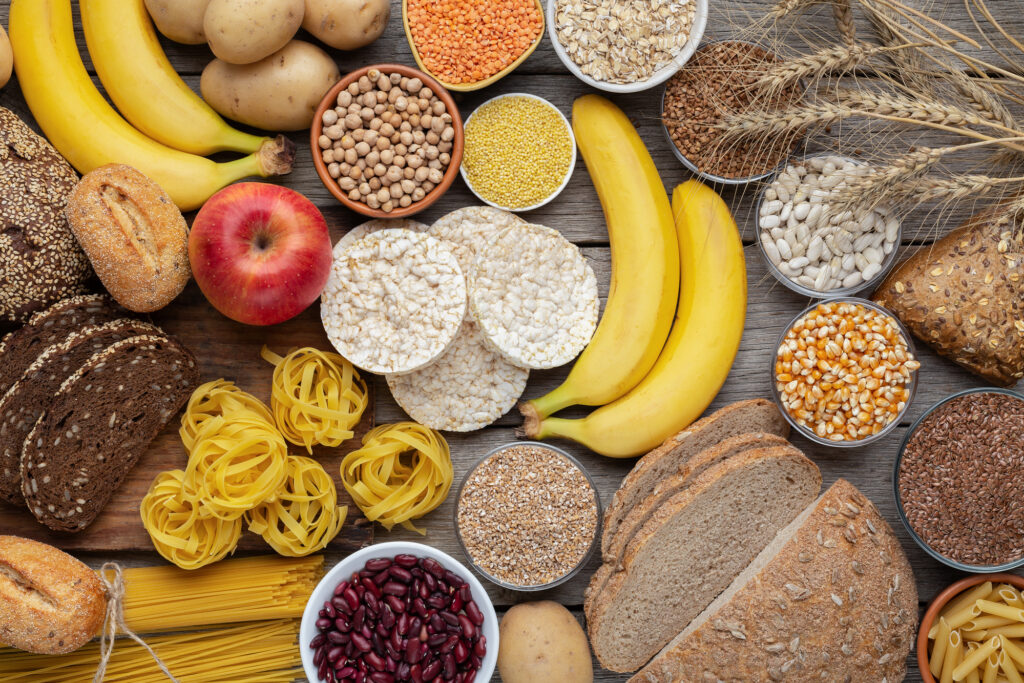Despite the prevalence and popularity of low-carb diets, the role of carbohydrates in weight gain and obesity remains controversial. Few studies have tracked the association between changes in carbohydrate intake over time and changes in body weight.
To address this, a team led by Harvard researchers set out to examine the association between carbs and weights at four-year intervals over a period of 24 years. They found that increased consumption of carbohydrates from refined grains, starchy vegetables, and sugary drinks is associated with greater weight gain throughout midlife, while increased fiber and carbohydrates from whole grains, fruit, and non-starchy vegetables is linked to less weight gain.
Most of these associations were stronger for people with excessive body weight, highlighting the potential importance of carbohydrate quality and source for long-term weight management, say the researchers. Their results were published in The BMJ in September.
The Study
The study analyzed data drawn from 136,432 men and women aged 65 years or younger who enrolled in the Nurses’ Health Study (1986-2010), the Nurses’ Health Study II (1991-2015), and the Health Professionals Follow-Up Study (1986-2014). At enrollment, all participants were free of health conditions including diabetes, cancer, cardiovascular disease, respiratory disease, neurodegenerative disorders, gastric problems, and chronic kidney disease.
Participants completed questionnaires on personal characteristics, medical history, lifestyle, and other health-related factors at the start of the study and every 2-4 years thereafter. The results showed that, on average, participants gained 1.5 kg every four years, amounting to 8.8 kg on average over the 24-year period of the studies.
The analysis showed that increased carbohydrate intake from whole grains (0.4 kg less weight gain per 100 g/day increase), fruit (1.6 kg less weight gain per 100 g/day increase), and non-starchy vegetables such as broccoli, carrots, and spinach (3 kg less weight gain per 100 g/day increase) was associated with less weight gain.
In contrast, increased intake from refined grains (0.8 kg more weight gain per 100 g/day increase) and starchy vegetables such as peas, corn, and potatoes (2.6 kg more weight gain per 100 g/day increase) was associated with greater weight gain.
In further analyses, the researchers found that replacing carbohydrates from refined grains, starchy vegetables, and sugar-sweetened drinks with equal servings of carbohydrates from whole grains, fruit, and non-starchy vegetables was associated with less weight gain. The associations were stronger among participants with excessive body weight than those with normal weight. Most of these associations were also stronger among women.
Conclusions
The researchers note that this was an observational study, so it can’t establish cause. They also point to several limitations, such as reliance on self-reported estimates of both carbohydrate intakes and weight outcomes, and potential errors in dietary measurement. That said, this was a large study using repeated dietary assessments and validated questionnaires over a long follow-up period, spanning the important period of weight gain in midlife.
As such, the researchers wrote in their conclusion, “The findings of this study highlight the potential importance of carbohydrate quality and source for long-term weight management, especially for people with excessive body weight. Limiting added sugar, sugar-sweetened beverages, refined grains, and starchy vegetables in favor of whole grains, fruit, and non-starchy vegetables may support efforts to control weight.”






